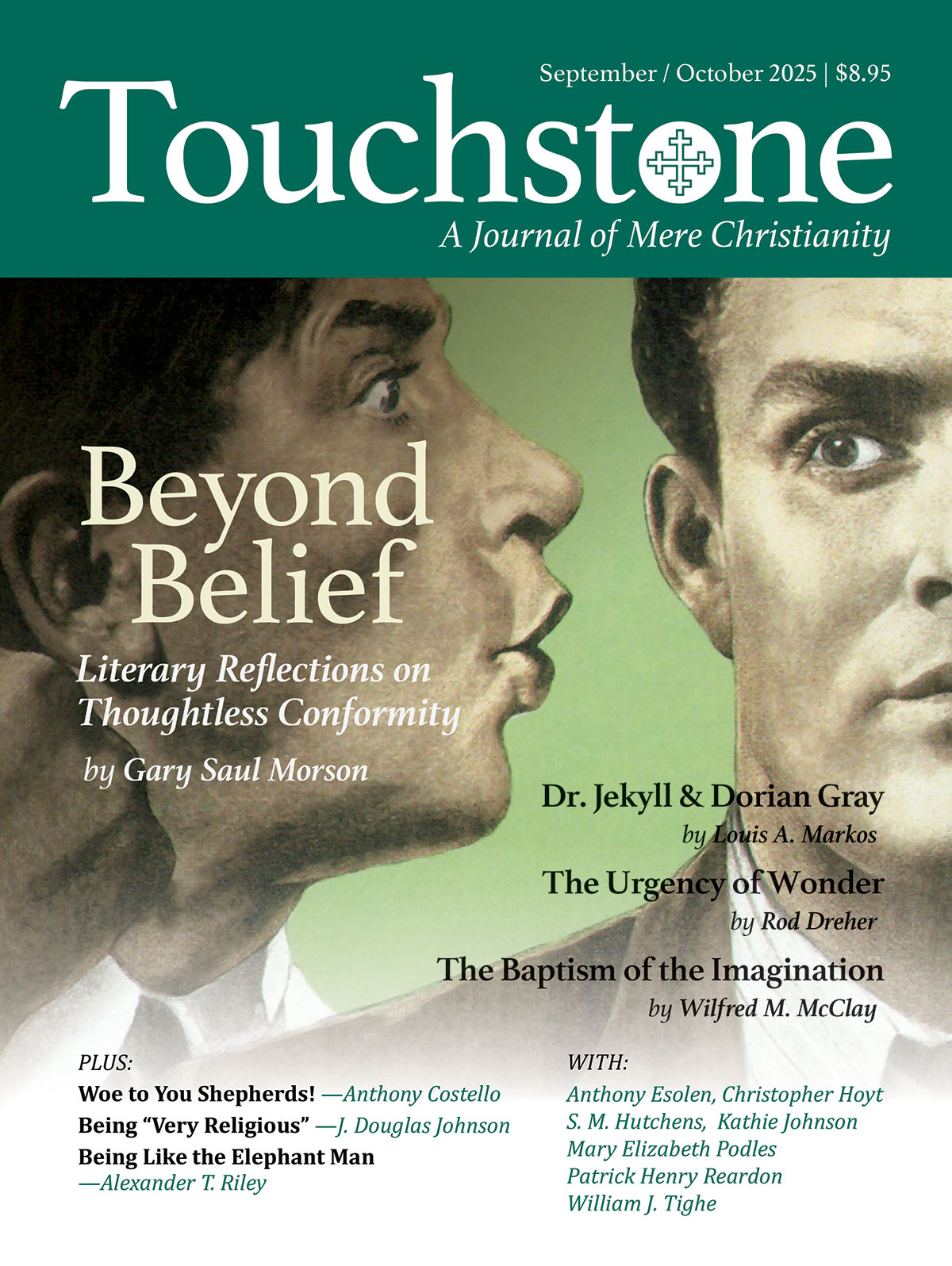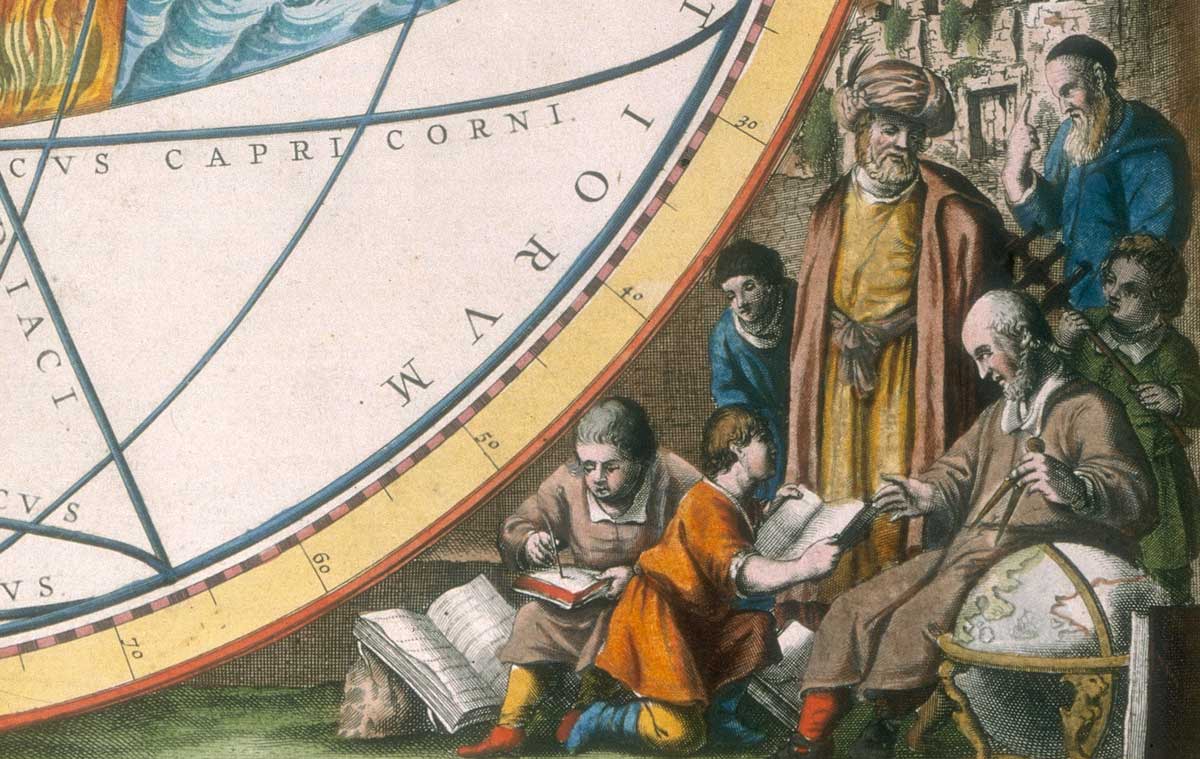“Very Religious”
How to Regard a New Term of Belittlement
Reading Robert Penn Warren’s All the King’s Men last week, I let out a small sigh when I read Jack Burden’s offhand remark that Governor Willie Stark was “not a religious man.” Not a criticism, of course. Just the kind of thing men say with a shrug and a drink in hand, as if godlessness were a matter of taste—an irreverence that floats by untouched, not because it’s right, but because it’d be too earnest to say so. So we don’t. In the 79 years that have passed since All the King’s Men was first published, we are more apt to hear, if anything, that so-and-so is “very religious” now that “not a religious man” has become the default.
When a sophisticated man of the 1940s, like Jack Burden, described someone as “not a religious man,” you understood what he meant—namely, that Willie, like Jack—and probably you too, dear reader—wasn’t your average Louisiana Bible-thumper. Likewise today, when someone tells you that so-and-so is “very religious,” the presumption is that you aren’t—thank God.
In the 2014 black comedy Force Majeure, by Swedish filmmaker Ruben Östlund, a young mother on vacation with her family at a European ski resort strikes up a conversation in the hotel bar with a woman about ten years her senior and her much younger American boyfriend (for the week). Upon introducing him, the older woman says, “He is very religious!” The young American, caught off guard, replies, “I just said that I believed in God.” The older woman, having made her disapproval known, shrugs as if to say, “Oh, it’s fine—we can talk about something else.”
It would sound odd, to say the least, to hear someone at church describe another person as “very religious”—just as it would be odd to hear a molecular physicist say that a colleague is “very scientific,” or a police officer remark that his partner is a “law-and-order kind of guy.” No, “very religious” is the sort of thing usually said by people who aren’t Christian, describing those who are—under the assumption that the listener isn’t, either. And I say Christian beliefs and practices deliberately, because the same people would rarely describe a practitioner of an eastern religion that way. They would simply say, “He’s a Buddhist.”
But “He’s very religious” is not quite an insult, and most people who say it probably don’t mean it that way, even if they do not mean it charitably.
More sophisticated men—such as Bill Maher, the late Christopher Hitchens, and fellow “New Atheist” Richard Dawkins—have used the phrase almost exclusively to belittle Christians. One might have thought that the attacks by Islamic terrorists on 9/11 would have put a dent in their otherwise singular focus on Christianity. But Hitchens, in particular, doubled down, saying, “See? This is what religion gets us.”
The irony is that Scripture has almost nothing to say about the word, either. “Religious” does not appear in most English translations of the Old Testament and only appears in two verses of the KJV New Testament. Was Moses “religious” when he stood in front of the burning bush? Was John the Baptist when he cried “brood of vipers”? Were Adam and Eve religious?
The intended slight against Christians is also embedded in the once-popular phrase “spiritual but not religious,” which flatters the deep and independent thinker—unlike us churchgoers, who are merely religious, dutifully thinking what we’re told.
I once heard about an older Jewish woman who was so annoyed by “spiritual but not religious” that whenever she heard it, she would respond by saying, “That’s funny; I’m just the opposite—religious but not spiritual.” I’ve been waiting for an opportunity to use that line ever since.
Frightfully Alive or Debonairly Nihilistic
None of this is to say that Christians should take offense when we hear ourselves described as “very religious.” There’s no reason to bristle at words spoken by men who barely know what they’re saying—or why they’re saying it. But neither should such remarks pass by unnoticed. We should hear them—and perhaps even feel a demonic tap on the shoulder when we do. All the more so when they come from men who speak without understanding. Because otherwise, we risk becoming what Richard John Neuhaus once called debonair nihilists—those calm, sophisticated men so thoroughly shot through with Novocain and Botox that they couldn’t register a reaction even if they could feel it. In a word, as Chesterton put it, they constitute the march of the paralytics:
If it can be said that the grandchildren “soon get used” to something that would have made the grandfathers fight duels to the death, it is always assumed that the grandchildren have found a new mode of living, whereas those who fought the duel to the death were already dead. But the psychological fact is exactly the other way. The duelists may have been fastidious or even fantastic, but they were frightfully alive. That is why they died. Their sensibilities were vivid and intense, by the only true test of the finer sensibilities, or even of the five senses. And that is that they could feel the difference between one thing and another. . . . It is the quicker ear that can detect in any speech the shade between innocence and irony, or between irony and insult. It is the duller ear that hears all the notes as monotone, and therefore monotonous.
Do not be proud of the fact that your grandmother was shocked at something which you are accustomed to seeing or hearing without being shocked. There are two meanings of the word “nervous,” and it is not even a physical superiority to be actually without nerves. It may mean that your grandmother was an extremely lively and vital animal, and that you are a paralytic.
J. Douglas Johnson is the executive editor of Touchstone and the executive director of the Fellowship of St. James.
subscription options
Order
Print/Online Subscription
Get six issues (one year) of Touchstone PLUS full online access including pdf downloads for only $39.95. That's only $3.34 per month!
Order
Online Only
Subscription
Get a one-year full-access subscription to the Touchstone online archives for only $19.95. That's only $1.66 per month!
bulk subscriptions
Order Touchstone subscriptions in bulk and save $10 per sub! Each subscription includes 6 issues of Touchstone plus full online access to touchstonemag.com—including archives, videos, and pdf downloads of recent issues for only $29.95 each! Great for churches or study groups.
Transactions will be processed on a secure server.
more on culture from the online archives
more from the online archives
calling all readers
Please Donate
"There are magazines worth reading but few worth saving . . . Touchstone is just such a magazine."
—Alice von Hildebrand"Here we do not concede one square millimeter of territory to falsehood, folly, contemporary sentimentality, or fashion. We speak the truth, and let God be our judge. . . . Touchstone is the one committedly Christian conservative journal."
Support Touchstone
—Anthony Esolen, Touchstone senior editor














